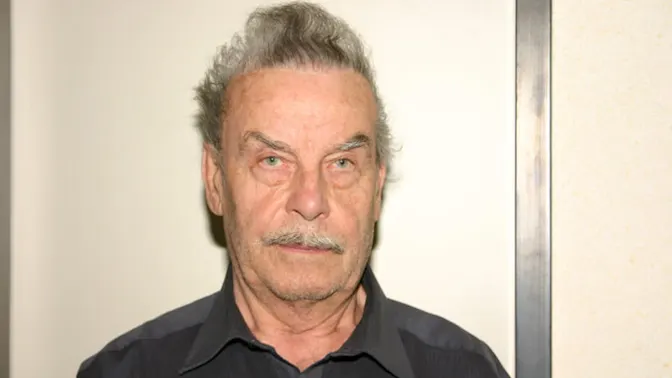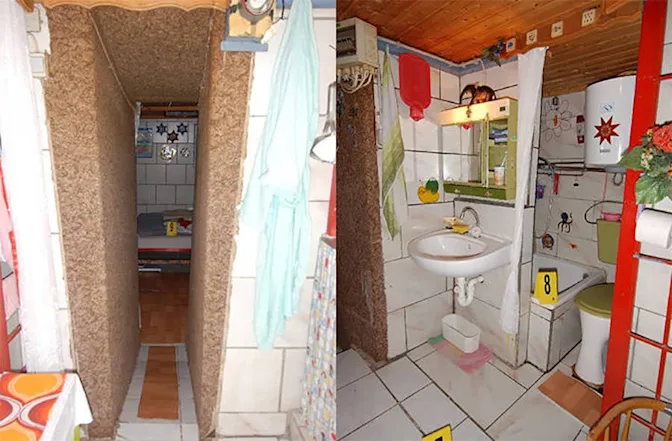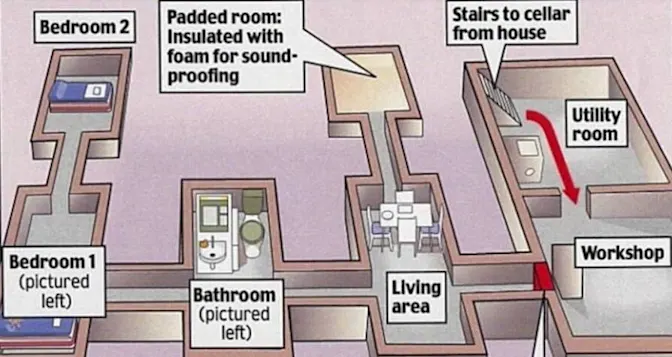
How a Woman Survived Her Father's Basement Prison
Elisabeth Fritzl's harrowing tale is one that shocked the world. For 24 years, she was held captive by her own father, Josef Fritzl, in a basement dungeon, hidden from society and subjected to unimaginable abuse until she was finally rescued.

A Sinister Plan
Josef Fritzl's premeditated plan to imprison his daughter began long before he locked her away. He had started constructing a hidden cellar beneath his home in Amstetten, Austria, in the late 1970s. On Aug. 28, 1984, he lured Elisabeth into the basement under the guise of helping him with a door, then subdued her with an ether-soaked rag and locked her inside.
Rosemarie, Elisabeth's mother, became worried about Elisabeth's sudden disappearance and filed a missing person's report with the authorities. To divert suspicion, he told Rosemarie that their daughter had run away to join a cult, and he forced Elisabeth to write letters to corroborate his story. Unbeknownst to his wife, a horrifying reality was unfolding just 20 feet below them.

Life in Captivity
Elisabeth's life in captivity was a nightmare. Confined to a small, windowless cellar with only basic amenities, she endured constant control and abuse from Josef. Over the years, she gave birth to his seven children, although one did not survive more than a few days. Three of them remained in captivity with her, while the other three were taken upstairs to live with Josef and his wife under the guise that Elisabeth had abandoned them.
Josef staged elaborate discoveries of the three children, leaving them neatly swaddled on his doorstep with a note supposedly written by Elisabeth, claiming she couldn't care for the baby and was leaving it with her parents. Surprisingly, social services never questioned the appearance of these children and allowed the Fritzls to keep them, believing that Rosemarie and Josef were their grandparents. During their captivity, any misbehavior from Elisabeth resulted in harsh punishments for her and her three children, including having the electricity shut off for days.

The Double Life of Josef Fritzl
To the outside world, Josef Fritzl was a normal, hardworking, and devoted family man. He demonstrated his dedication to work by telling his wife he had to start working in the cellar at 9 a.m. every morning and sometimes stay overnight to complete his "drawing plans" for the machines he sold. He meticulously maintained this facade for decades, ensuring his secret remained hidden.
The Breakthrough
Elisabeth's rescue came about by a stroke of luck. In April 2008, her 19-year-old daughter, Kerstin, fell seriously ill, prompting Josef to take her to the hospital. The medical staff, puzzled by Kerstin's condition and lack of medical history, alerted the authorities to find the mother in question.
For a week, police questioned Kerstin and asked the public for any information about her family. Naturally, no one came forward as there was no family to speak of. Growing suspicious of Josef, the police reopened the investigation into Elisabeth Fritzl's disappearance. They began scrutinizing the letters supposedly left by Elisabeth and noticed inconsistencies. Under pressure from the police, Josef finally relented, bringing an end to Elisabeth's 24-year ordeal.
Aftermath and Recovery
Elisabeth and her children face a long and arduous path to recovery from their physical and psychological abuse. Elisabeth, now in her mid-50s, and her children have new identities to shield them from media scrutiny and allow them to rebuild their lives away from the public eye.
Justice Served
Josef Fritzl was arrested and, in 2009, sentenced to life imprisonment for his crimes, including murder, enslavement, and incest.
Josef's trial revealed the full extent of his depravity, shocking the world and serving as a grim reminder of the atrocities that can occur behind closed doors.
References: How Elisabeth Fritzl Was Imprisoned For 24 Years By Her Father Josef | The Father Who Locked His Daughter in His Basement for 24 Years























